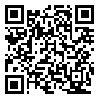Wed, Feb 18, 2026
| فارسی
Volume 23, Issue 1 (Spring 2017)
IJPCP 2017, 23(1): 22-37 |
Back to browse issues page
Download citation:
BibTeX | RIS | EndNote | Medlars | ProCite | Reference Manager | RefWorks
Send citation to:



BibTeX | RIS | EndNote | Medlars | ProCite | Reference Manager | RefWorks
Send citation to:
Babaei S, Asgharnejad farid A, Lavasani F, Birashk B. Comparing Impulse Control and Emotional Regulation in Patients With and Without Food Addiction. IJPCP 2017; 23 (1) :22-37
URL: http://ijpcp.iums.ac.ir/article-1-2435-en.html
URL: http://ijpcp.iums.ac.ir/article-1-2435-en.html
1- Department of Clinical Psychology, School of Behavioral Sciences and Mental Health (Tehran Institute of Psychiatry), Iran University of Medical Sciences
2- Associate Professor, Department of Clinical Psychology, School of Behavioral Sciences and Mental Health (Tehran Institute of Psychiatry), Iran University of Medical Sciences ,asgharnejad.ali@gmail.com
2- Associate Professor, Department of Clinical Psychology, School of Behavioral Sciences and Mental Health (Tehran Institute of Psychiatry), Iran University of Medical Sciences ,
Abstract: (8849 Views)
Objectives This study examined the variables of impulse control and emotional regulation in patients with food addiction compared to the control group.
Methods The study was cross-sectional, and the sample was composed of men. Thirty patients admitted to a clinic for food addiction were part of the research group, and another 30 persons were part of the control group. Semi-structured interviews were used for screening the participants. The Yale Food Addiction Scale was used for diagnosis and research groups, and the Barratt Impulsiveness Scale and Graz Difficulties in Emotional Regulation Scale were used to assess impulse control and emotional regulation, respectively. To evaluate each variable, multivariate analysis of variance was conducted.
Results The findings demonstrated that patients had statistically achieved the lowest scores in all aspects of food addiction, impulse control and emotional regulation compared with the control group.
Conclusion Patients with food addiction had high impulsivity and lower emotion regulation compared to the control group. Thus, it can be inferred that impaired impulse control and emotional regulation are important factors in the formation and persistence of addictions.
Methods The study was cross-sectional, and the sample was composed of men. Thirty patients admitted to a clinic for food addiction were part of the research group, and another 30 persons were part of the control group. Semi-structured interviews were used for screening the participants. The Yale Food Addiction Scale was used for diagnosis and research groups, and the Barratt Impulsiveness Scale and Graz Difficulties in Emotional Regulation Scale were used to assess impulse control and emotional regulation, respectively. To evaluate each variable, multivariate analysis of variance was conducted.
Results The findings demonstrated that patients had statistically achieved the lowest scores in all aspects of food addiction, impulse control and emotional regulation compared with the control group.
Conclusion Patients with food addiction had high impulsivity and lower emotion regulation compared to the control group. Thus, it can be inferred that impaired impulse control and emotional regulation are important factors in the formation and persistence of addictions.
Type of Study: Original Research |
Subject:
Psychiatry and Psychology
Received: 2016/09/29 | Accepted: 2017/01/8 | Published: 2017/04/1
Received: 2016/09/29 | Accepted: 2017/01/8 | Published: 2017/04/1
| Rights and permissions | |
 |
This work is licensed under a Creative Commons Attribution-NonCommercial 4.0 International License. |





